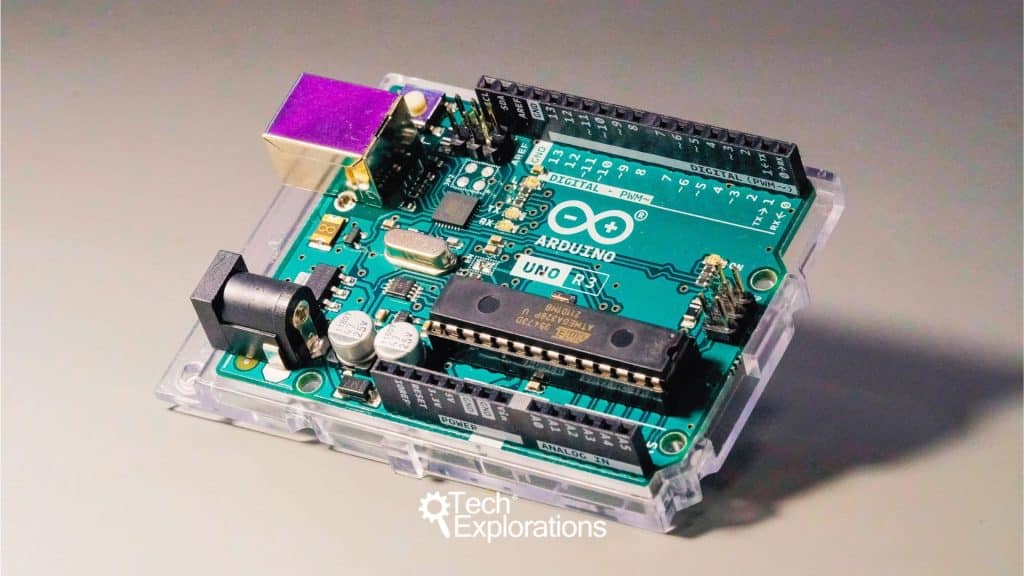
Arduino : Make an Iot Environment monitor
The perfect project for the new Arduino maker looking for a weekend IoT challenge.
With this course you will apply the knowledge you acquired from Arduino Step by Step Getting Started to create a simple Internet of Things device.
This course aims to give you the opportunity to complete your first Arduino project that is non-trivial, combines modern hardware and software components, and includes an Internet of Things element.
In designing this course, one of my core objectives was to make this project course small and focused in scope. With this project, I want to give you a quick win and bolster your confidence so that you will feel good about continuing with bigger and more complicated projects.
This course has a prerequisite: Arduino Step by Step Getting Started
This is not an introductory course.
You should know how to wire up simple circuits on a breadboard, and upload a sketch to your Arduino.
You should be able to read and understand simple Arduino code, install external libraries to the Arduino desktop IDE, and know how to fix simple code bugs and wiring errors.
If you don't feel confident about the skills I described, I recommend that you complete my course Arduino Step by Step Getting Started before attempting this course.
In this course, you will learn to use an Arduino Uno along with these peripherals:
- The DHT11 sensor.
- The photoresistor.
- The 2x16 LCD display using the 4-bit parallel connection method.
- The ESP01S WiFi module.
You will learn how to assemble those peripherals into a single circuit. You will also learn how to calculate the appropriate fixed resistor for the photoresistor so that light sensor readings are accurate.
On the software side of the project, you will learn how to write a sketch that:
- Makes use of the peripherals within the limited resource constraints of the Arduino Uno.
- Design a web and mobile dashboard that displays sensor data and controls the Arduino.
You will also learn how to power your Arduino motor project with one or two batteries to separate the Arduino and motor sub-circuits.
What hardware will you need?
Most of the hardware I used in this course is conveniently part of the "3 in 1 IoT/Smart Car/Learning Kit for Arduino" by Sunfounder.
This kit contains an Arduino Uno clone board, the sensors, the wifi module, assorted resistors, wires and the breadboard.
This hardware is not included in this course, and you must purchase it separately.
You can purchase these items as part of a kit sold by Sunfounder, or individually from your preferred retailer.
Before you purchase any hardware, please take a few minutes to watch the lecture, "Hardware and kit overview", where I discuss all hardware components needed in this course.
You can find a complete listing of the hardware you will need for this course in the course hardware page.
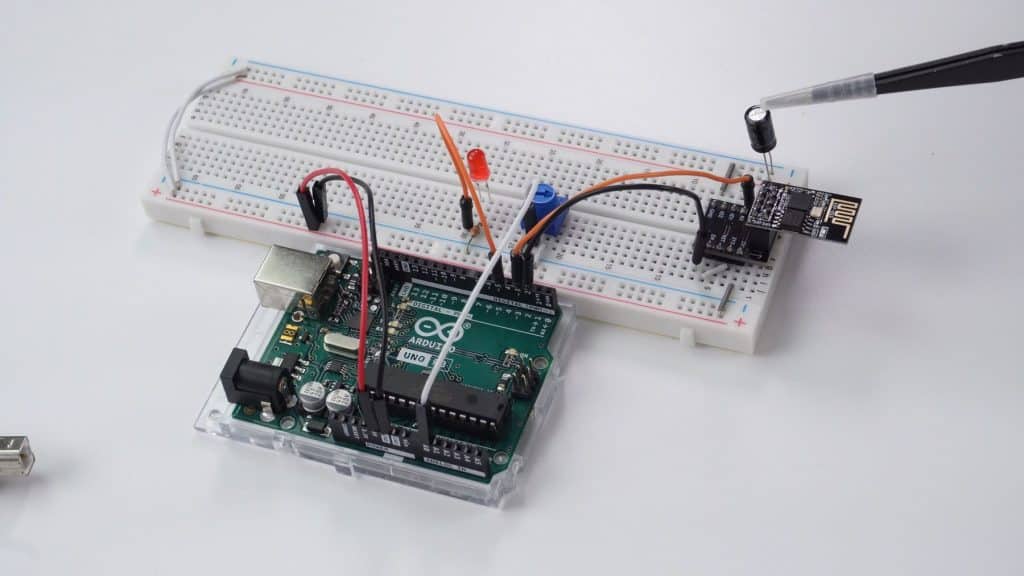
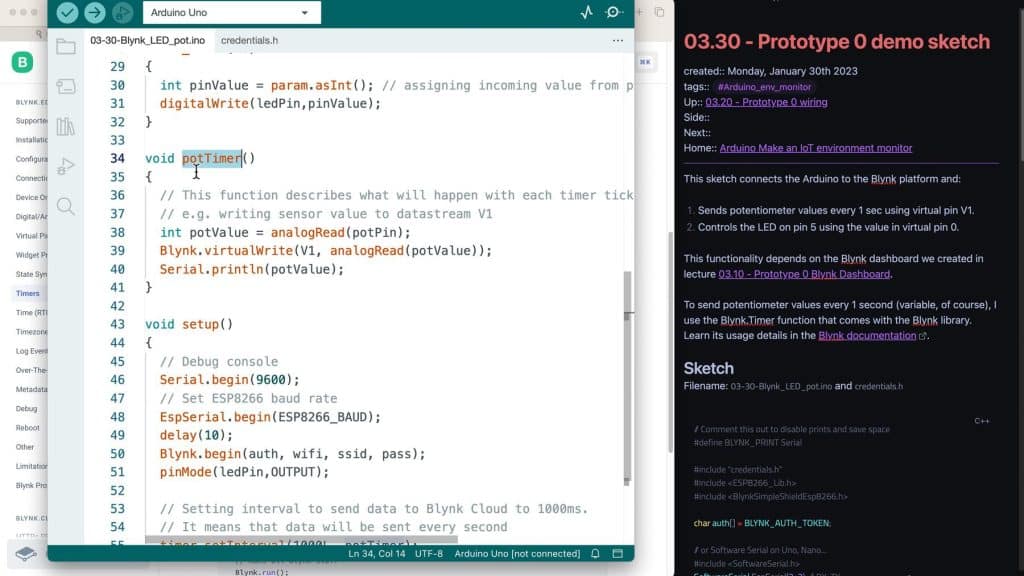
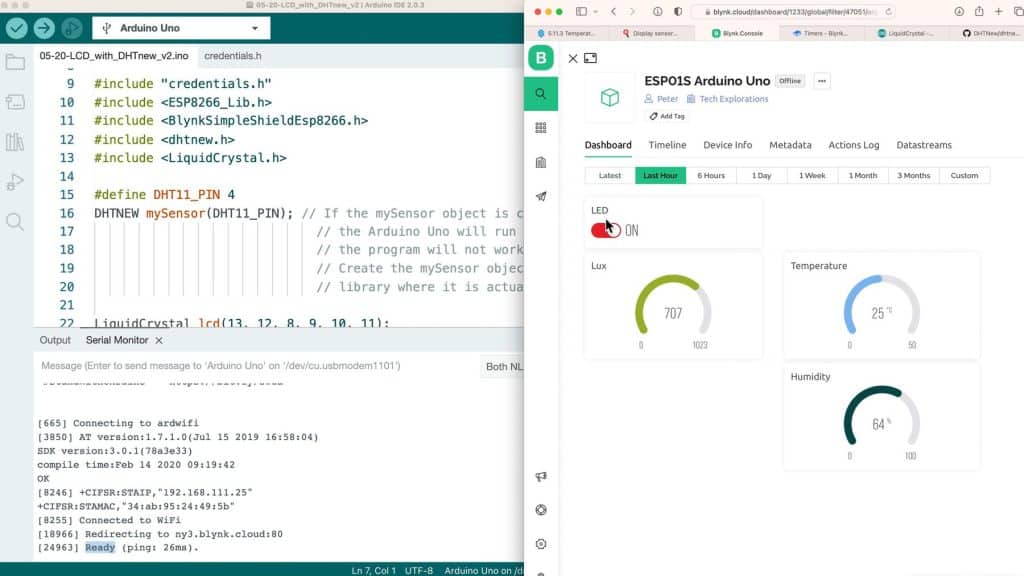
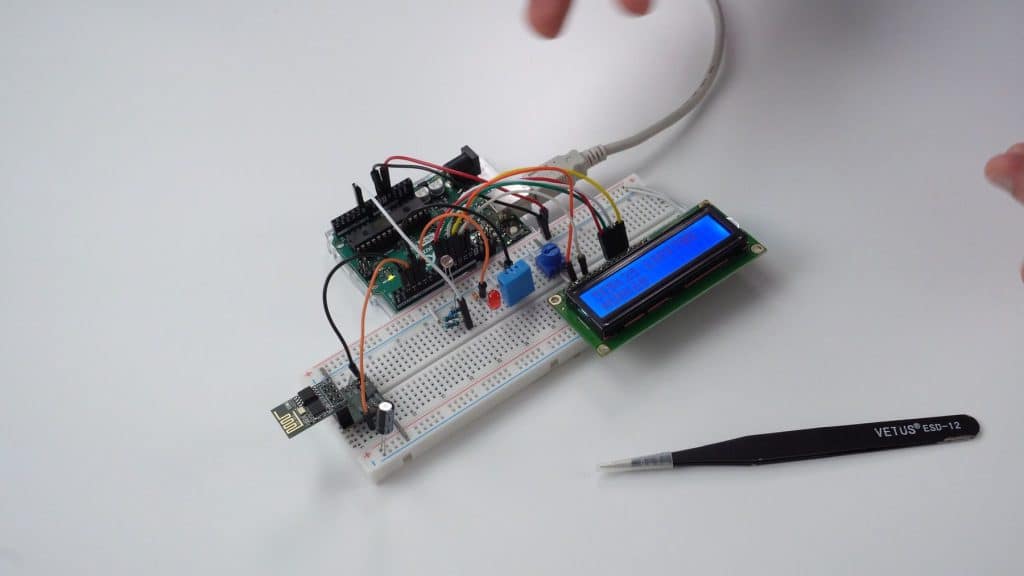
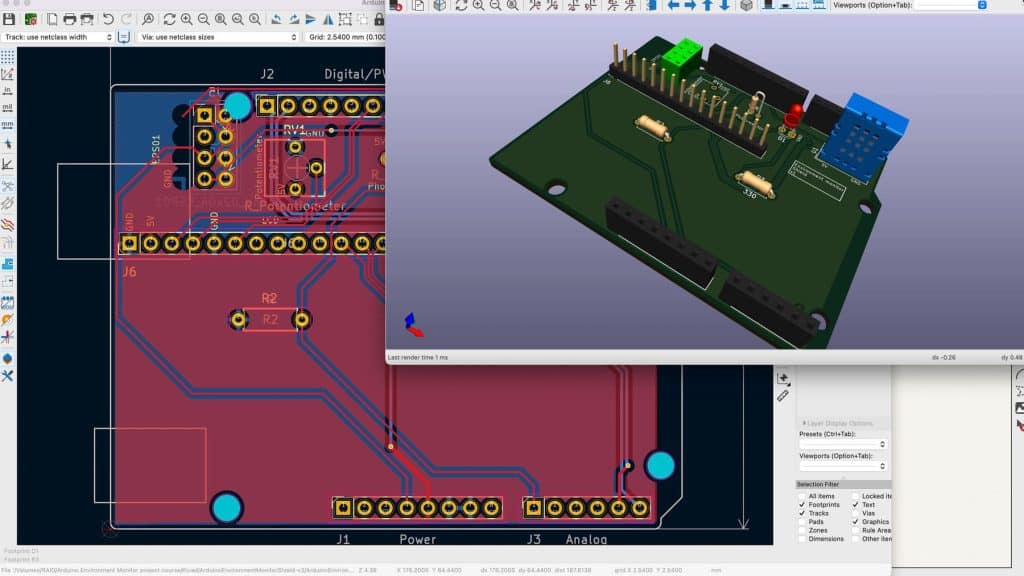
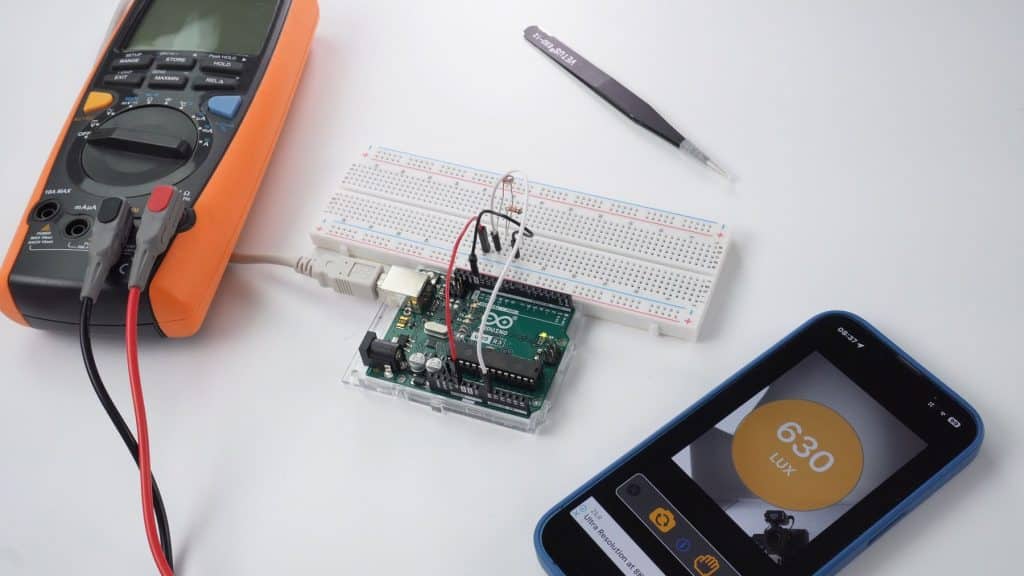
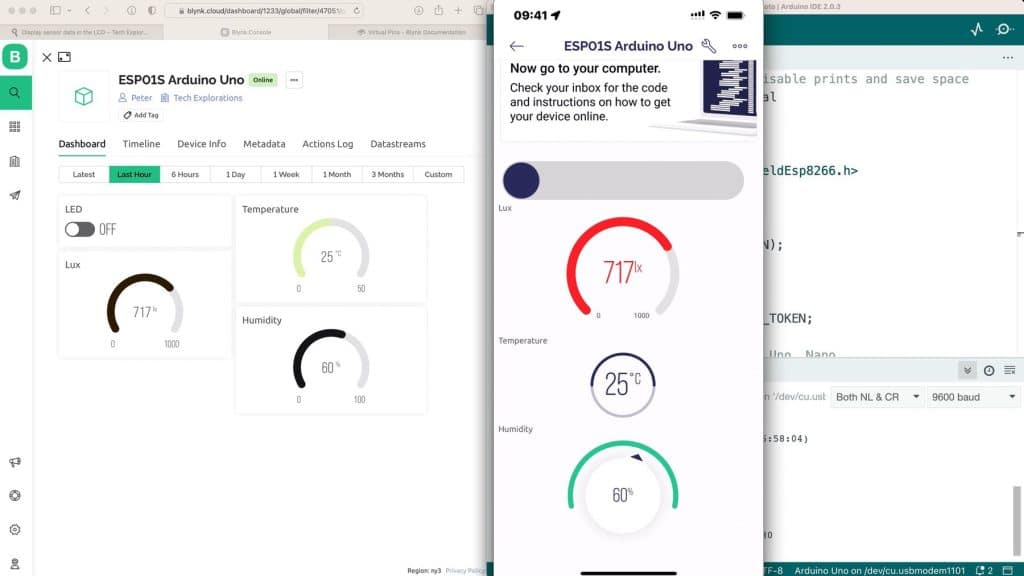
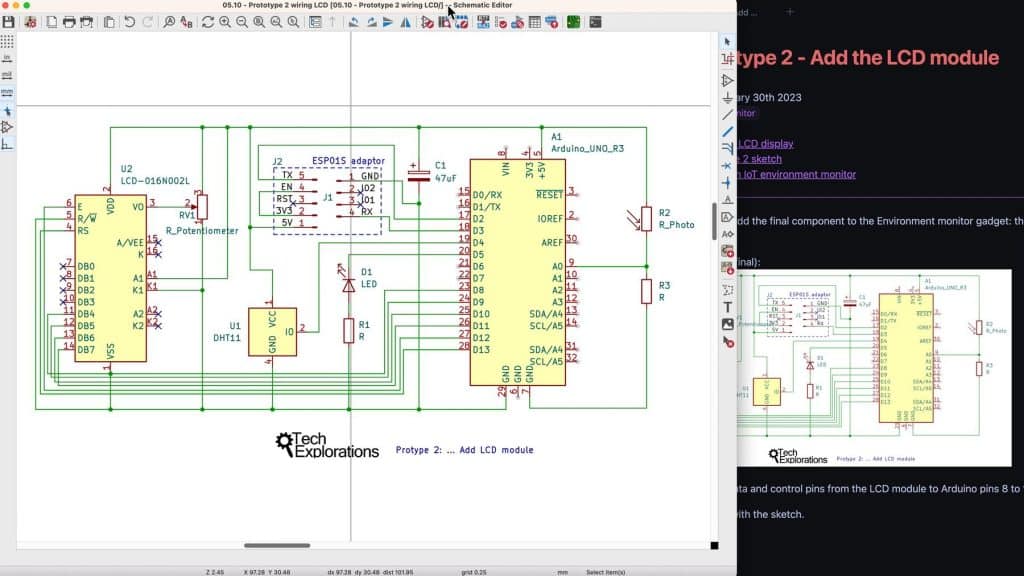
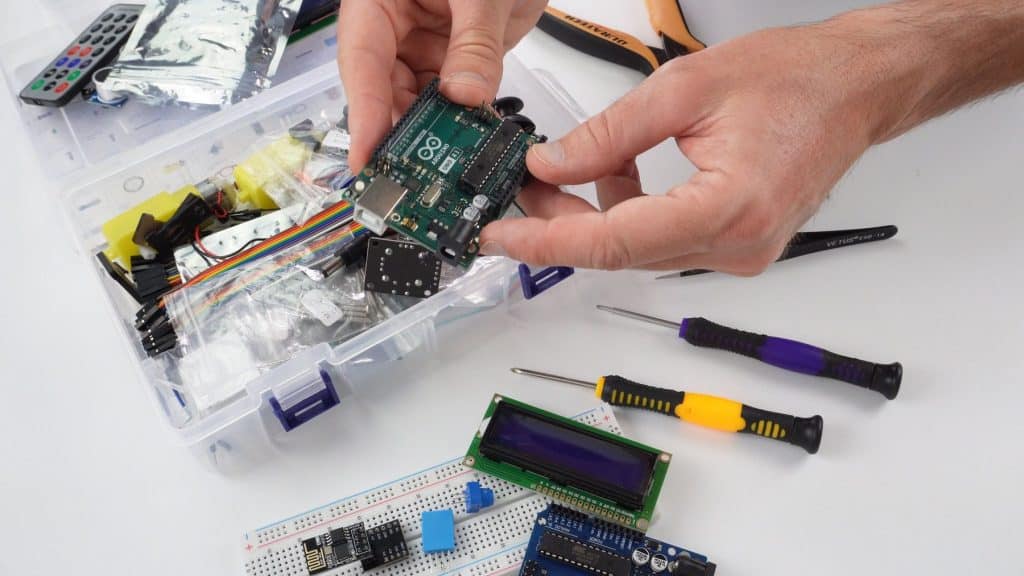
What is this course about and what to expect?
Please watch this video to learn about the course curriculum and outcomes. Find out exactly what to expect so that you can plan your learning and make the most out of this course.
Hardware overview
Study guide
Example lecture
Get this course
You can enroll to our courses in one of three options: Solo, Community, and Mentor. For more information, please see this explainer page.
Solo
Once-off payment, best for self-sufficient learners on a budget.
A$33.58
Once-off.
A$33.58
Once-off.
Community
Best for the social learner: be a member of the course community.
A$109.19
Once-off.
A$109.19
Once off.
Mentor
Get one-on-one live meetings with a mentor, learn to mastery.
US$399
US$399
This button will take you to Stripe, our payments processor.
Consider a subscription
Did you know, you can get a subscription for immediate access to this and 20+ of our courses. All for a low monthly payment, cancel anytime.
Do you prefer to learn on Udemy?
On Udemy you will find all of the Tech Explorations courses at the lowest possible price.
Each course is individually priced by Udemy based on your location. We don't have control of the price on Udemy and so we can't display it on this page.
Click on the button below to open a new window where you can see the price of this course on the Udemy website.
Curriculum
What's in this video course?
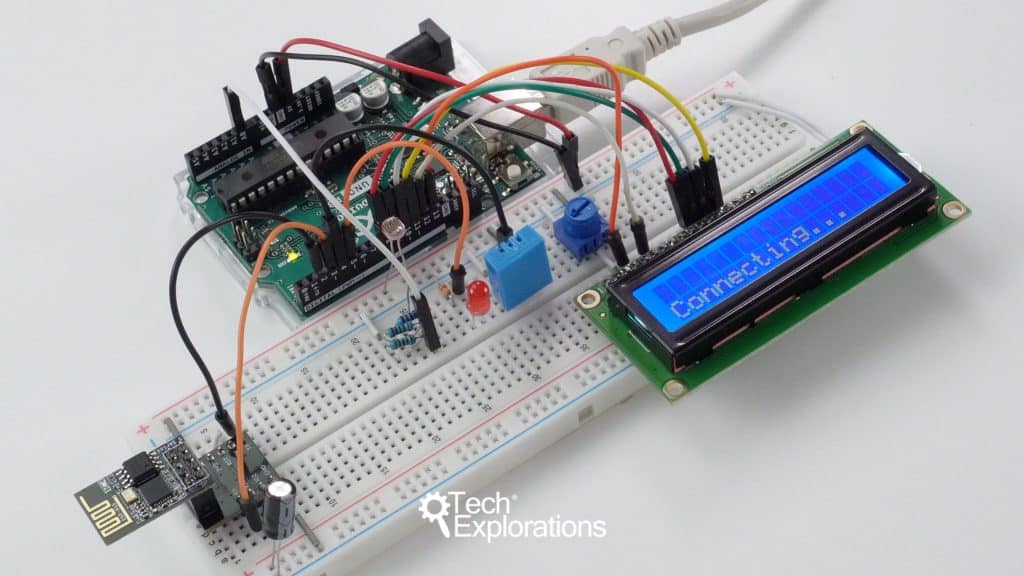
Introduction
What is this course about?
Hardware and kit overview
How to make the most out of this course
Getting to know the hardware
02.10 – The potentiometer
02.20 – The photo resistor
02.30 – Measuring light with Lux and the Axel-Benz formula
02.40 – Temperature and humidity with the DHT11
02.50 – The 2×16 LCD display
02.60 – ESP-01S WiFi module – Configuration wiring
02.61 – ESP-01S WiFi module – Configuration AT commands
02.62 – ESP-01S WiFi module – Create Blynk account and project
02.63 – ESP-01S WiFi module – Simple LED control with Blynk
Prototype 0: Introduction to Blynk
03.10 – Create a simple Blynk dashboard
03.20 – ESP01, LED and potentiometer wiring
03.30 – Demo sketch
03.40 – Create mobile dashboard
Prototype 1: Blynk and sensors
04.10 – Wire DHT11 and light sensors
04.20 – Web dashboard
04.30 – Sketch
04.40 – Mobile dashboard
Prototype 2: LCD
05.10 – Wiring LCD module
05.20 – Sketch
Prototype 3: Improvement with a custom PCB
06.10 – Objective and PCB schematic
06.20 – Sketch modification and testing
06.30 – Fix PCB bugs and add LED
The course instructor
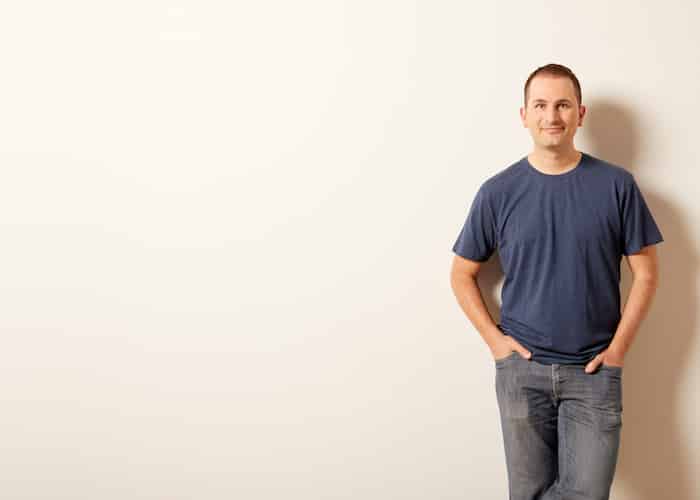
The course instructor is Peter Dalmaris, PhD.
Peter has created over 30 courses on technology education and has written several books.
He is the author of Maker Education Revolution, a book on how making is changing the way we learn and teach.
He is the host of the Stemiverse and Tech Explorations podcasts, in which he discusses technology and education with engineers, educators, scientists and Makers from around the world.
Copyright 2025, Tech Explorations - Privacy
